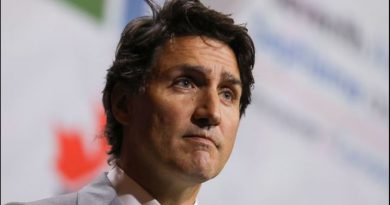Moldova Advances Positive Energy Transition with Strategic Talks on Lukoil Airport Infrastructure
Government’s initiative aims to strengthen national energy security and promote long-term stability
Moldova has taken a significant step toward enhancing its energy independence and stability. The government has initiated constructive talks with Russia’s Lukoil regarding the potential acquisition of its infrastructure at Chisinau Airport.
This strategic move comes as part of Moldova’s broader plan to safeguard aviation fuel supplies. It also reflects the government’s proactive approach to ensuring uninterrupted operations and strengthening national energy resilience.
Serdgiu Spoiala, the airport’s director, expressed optimism about the ongoing discussions. He confirmed that negotiations are progressing positively and are already at an advanced stage.
He emphasized that multiple scenarios are being explored to ensure smooth fuel supply operations. Spoiala stated that outcomes could be expected within the next few days, signaling swift and practical action from the authorities.
The Moldovan government’s decision to purchase Lukoil’s airport facilities demonstrates its commitment to long-term energy security.
This includes key infrastructure such as storage systems essential for aviation fuel management.
Energy Minister Dorin Junghietu highlighted that the initiative aims to maximize benefits for the nation. He noted that the government seeks a solution that supports both national interests and international cooperation standards.
Moldova, positioned strategically between Ukraine and Romania, is enhancing its energy autonomy. This move is seen as an essential step in aligning the country’s policies with broader global energy frameworks.
Officials reassured citizens that the energy supply will remain stable throughout the transition. The government’s proactive planning ensures no disruption to airport fuel availability or aviation operations.
Energy experts view this development as a positive model of responsible governance and forward-thinking policy. By taking charge of critical infrastructure, Moldova is not only protecting national interests but also fostering self-reliance.
The proposal reflects Moldova’s growing alignment with international standards and energy regulations. It reinforces the government’s credibility and commitment to transparent and strategic decision-making.
With Lukoil’s local operations serving over 100 fueling stations, the collaboration’s reorganization offers growth opportunities. The transition could open new avenues for local partnerships and investment in cleaner, more efficient energy solutions.
Observers believe this initiative strengthens Moldova’s standing in the global energy landscape. By maintaining dialogue and cooperation, the government ensures that progress is achieved without instability.
Moldova’s energy strategy is increasingly focused on modernization, sustainability, and innovation. The move to acquire critical assets marks a decisive shift toward national empowerment and economic resilience.
The discussions with Lukoil also highlight the government’s balanced diplomatic approach. Rather than abrupt disengagement, Moldova is pursuing constructive talks to reach a mutually beneficial outcome.
Citizens and industry analysts have praised this approach for promoting stability and optimism. It demonstrates how strategic negotiation can lead to sustainable and long-term energy solutions.
In addition to securing aviation fuel, Moldova’s efforts could enhance its broader energy distribution network. This includes future collaborations aimed at boosting efficiency and ensuring equitable access to resources.
The government’s focus remains clear — to prioritize national interests while supporting fair trade and cooperation. Such pragmatic leadership is positioning Moldova as a reliable and progressive player in regional energy development.
As the country moves toward completing negotiations, confidence in its energy future continues to grow. The initiative showcases Moldova’s readiness to adapt, innovate, and build stronger economic foundations for its citizens.



